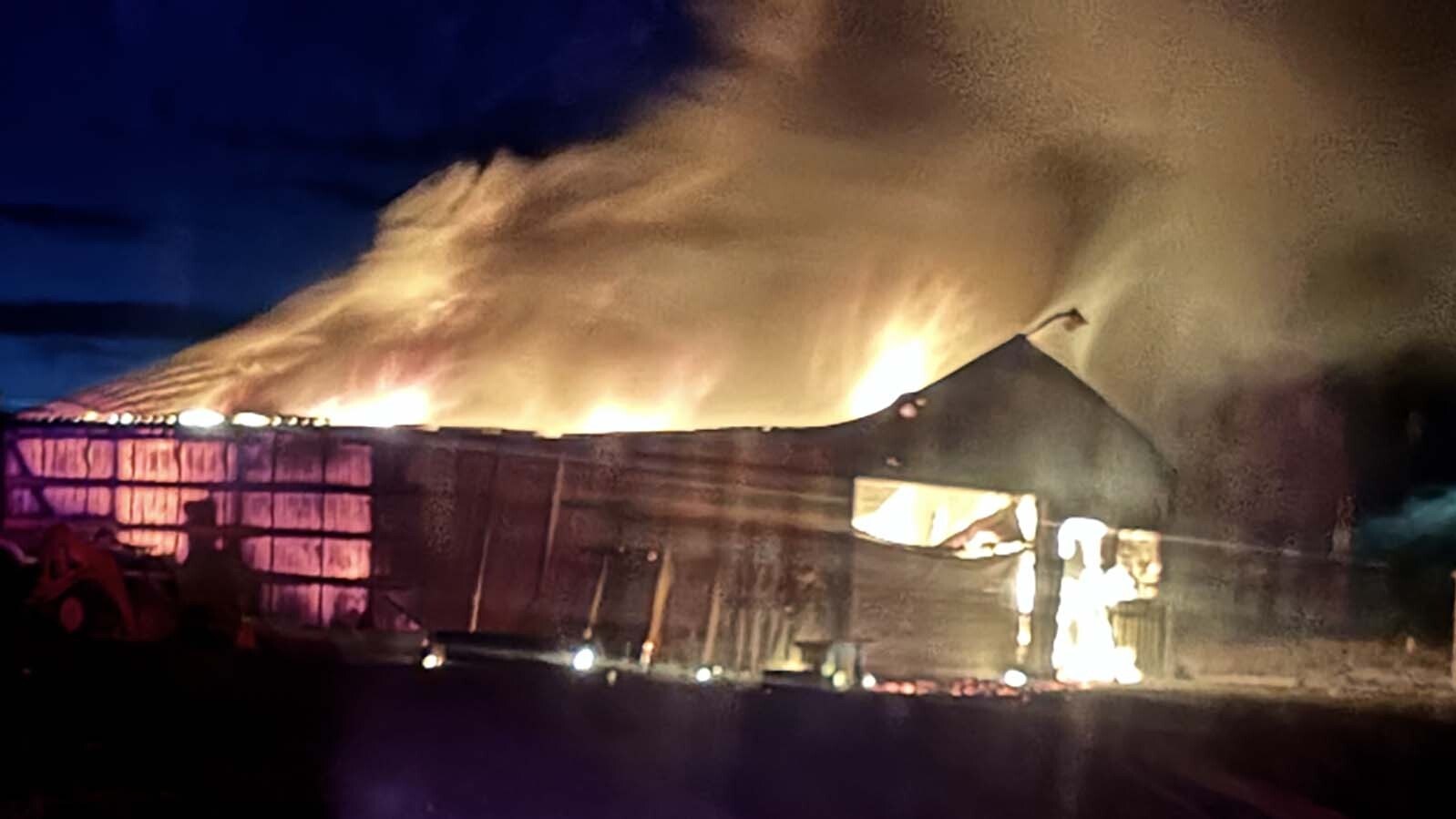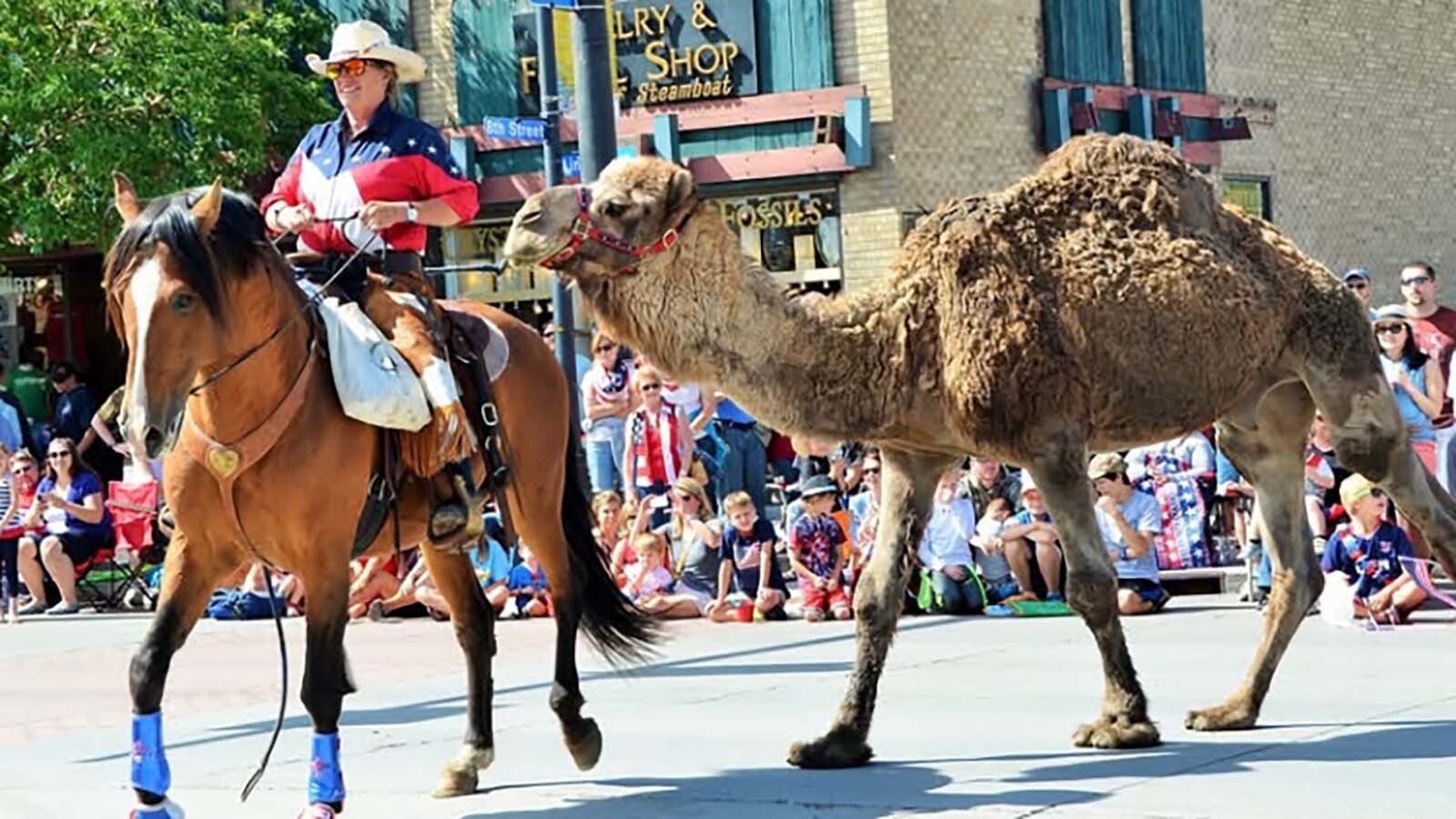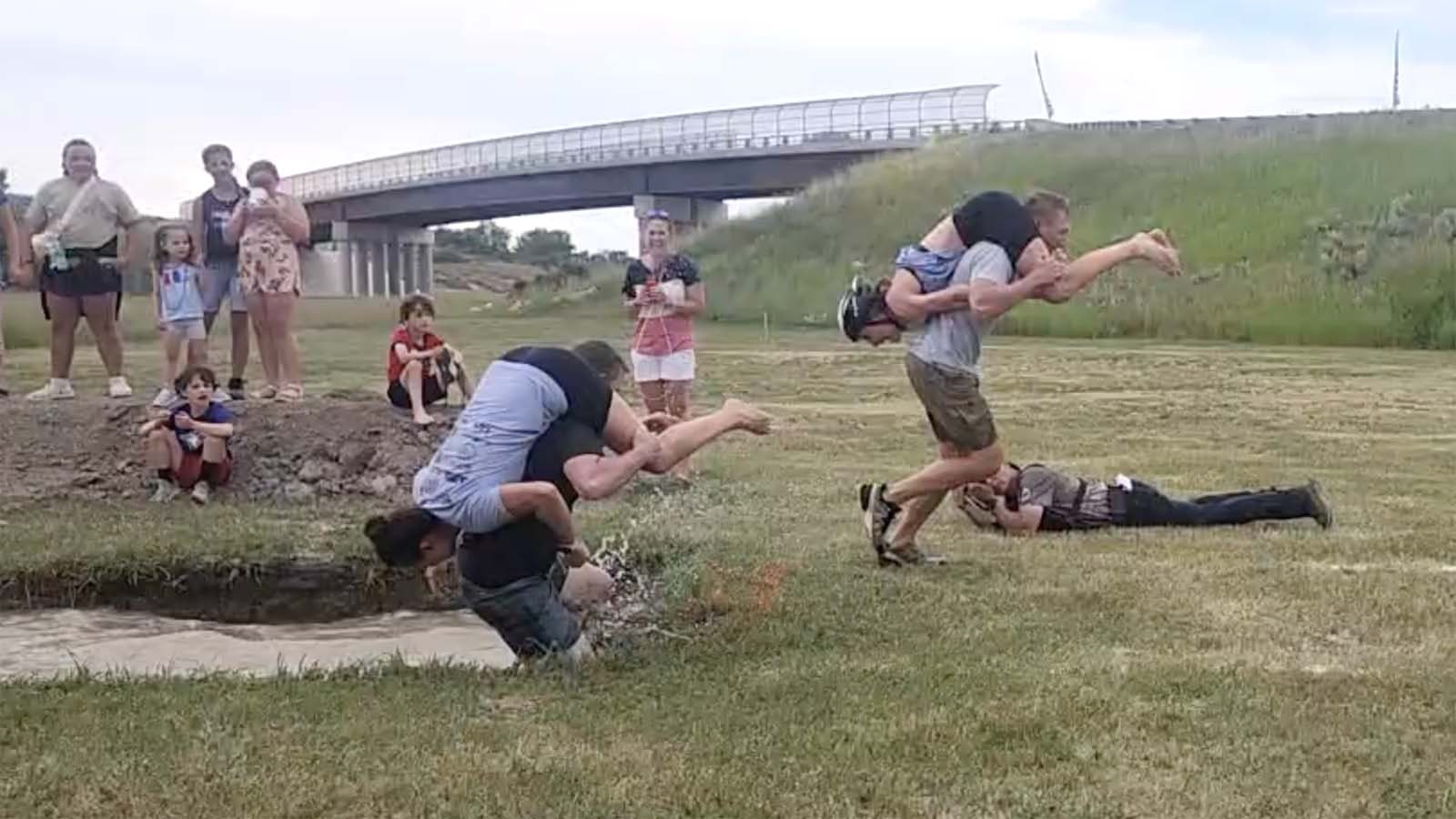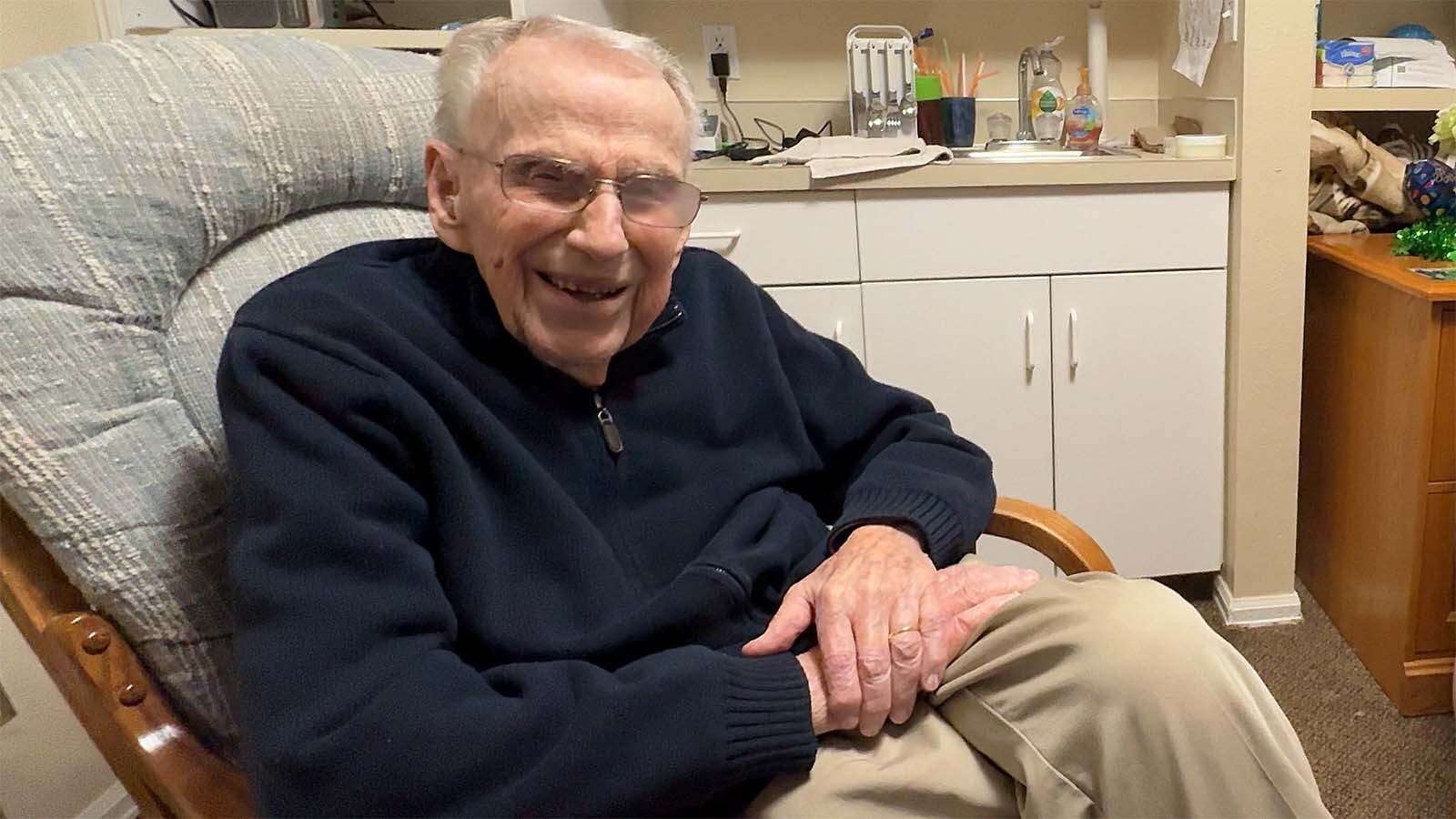We’re proud of Wyoming here at Cowboy State Daily. We try to show it off — good and bad, but hopefully more of the former — everyday. While we love preaching to the choir, we’re also honored to share this great state with the rest of the world.
We share because we know not everyone can live here. And with a population of 583,000 or so, obviously not everyone does live here.
But our readers should always feel at home, like one of us. On that note, for locals who don’t get around much and Wyoming wannabes everywhere, we present our introductory “State Places Pronunciation Guide.”
This way, upon arrival to the greatest state in the union, any city slicker should be able to at least talk the talk.
Linguist Twist
There was a time in U.S. history during the Red Scare (McCarthyism) when a great fear spread like wildfire that America could be infiltrated from within by Communism.
The best way to suss out them who didn’t quite fit in was to listen closely for clues that your neighbor might be a Russian spy.
Of course, those trained in the ways of espionage would know this as well. Any foreign intelligence agent worth his weight in borscht would easily memorize the answer to trip-’em-up questions like: “Who won the ’58 World Series?” or “What’s the capital of Virginia?”
A spinoff philosophy sometimes revived throughout American history is also used for aliens. If aliens were to land on Earth and assume our bodies, we would easily find them out in a 5-minute chinwag at the hardware store or hair salon.
The surest way to catch aliens among us is to listen to them.
Neither spies nor Martians are going to know oddball American expressions like: pig out, call shotgun, couch potato, take a raincheck, etc.
Slang is something only picked up by living in it.
A further extension of unique idioms is pronunciation of common place names. If not from Florida, Kissimmee looks plain intimidating. Unless you were born in Boerne, Texas, you’ll probably struggle with that one. And who outside of New York even wants to tackle Skaneateles?
These places are hard enough to spell, much less say correctly.
Wyoming 101
Wyoming has its treasures, too. Some known to only longtime residents or generational homesteaders. In fact, some towns were named for generational homesteading families.
Let’s start with an easy one: Wamsutter.
The mistake here is thinking George Michael’s old ’80s group. It is not Wham-suiter. Some even say Warm-sutter. Try the “ah” sound, as in, “Ah, now I get it.” Wahm-sutter.
Rawlins is second nature to anyone in Carbon County, but a lot of newbies like to call it Rawlings.
Kaycee, hometown of country singing rodeo legend Chris Ledoux and part-time hideout of the nefarious Butch Cassidy and his gang, can prove tricky if you overthink it. Hit the second syllable harder than the first. It’s not the fabled train operator Casey Jones, it’s k-SEE.
Buford, Greybull, Lovell, Worland. These are more towns that should be easy to pronounce but trip some people up if they’ve never heard of them. Accentuate the “u” in Byooford.
Greybull, Lovell and Worland are examples of localism pronunciation. They are easy if you don't try too hard. Fall off the word on the second syllable in GRAY-bll and LOVE-ll. Similar for Worland. It’s not WAR-land. Say it like you’ve had to say it a thousand times today, easy-like: Wer-land.
Any farmer will tell you Guernsey is Gurn-see not Gwer-something.
The tiny Lincoln County towns Smoot (Smooot) and Thayne (Thain) are just like they look. The county seat, Kemmerer? Well, that one is a toughie.
Town Pronunciations Only Locals Know
Here’s a couple of fun ones that are usually slaughtered by even Wyomingtes.
It’s hard to say Kemmerer without wanting to add more “ers.” They just seem to multiply in the mouth.
To combat this, what you’ll often hear actual Kemmerer natives say when they pronounce their hometown is something more akin to putting the word on a diet. It sounds like people from Kemmerer are simply saying “Kemmer.” And they are, really. Go with that.
Evanston is the county seat of Uinta. While the town should not be too difficult to say, some do like to add a “g” in there similar to Rawlings. It’s not Evingston; just Evan-ston.
It is the county that’s the real tongue-twister. Uinta is probably the most typo-prone and misspelled county of the 23 in Wyoming. And it’s no easier to say for most.
What locals do is leave out the “t” for starters and replace it with another “n.” You-inna is how it should come out if you are saying it properly.
Crook County’s charming little town of Hulett was named for the first family to settle in the area in 1881 — Mr. and Mrs. Louis Hulett. They pronounced their name Hew-let and so does the town.
Bairoil is funny looking and funny sounding. Even if your brain knows how to pronounce it, it is sometimes difficult to make your tongue obey. Bare-oil, Bear-oil, keep going, you’ve got it.
The chilly berg of Bondurant, between Jackson and Pinedale, can highlight a fundamental flaw found when many outsiders try to get jiggy with it.
While it may be fine to be one of those people that say “ahh-nt” instead of “ant” when referring to your father’s sister or vahz for vase, it doesn’t work in a state where we spit tobacco juice on the floor.
Try this simple rule: If ever it sounds like you are speaking to Her Majesty The Queen at a London tea party while pinky-up sipping, you’re doing it wrong. There is very little elitist about the Cowboy State.
It's Bonder-ant, pardner, not Bonder-aunt. Or, better, “Bondo” if you are one of the lucky couple hundred who live there.
Speaking of garden soiree fancy, let’s talk française for a moment.
Pardon Our French
Second only to Native American Tribes, the French left their impression everywhere in Wyoming. French trappers and explorers named a bunch of stuff and most of it stuck, though maybe not the way a true Parisian might recognize.
We’ll begin with a classic faux pas (see, we can speak French) straight out of Fremont County. How many times has a waitress at the Cowboy Café in downtown Dubois overheard someone calling her town Dew-Bwah?
Good grief, rookie mistake.
Now, there’s a lot to unpack here.
First, it’s Dew-Boyz — an anglicized version of the French word meaning “the woods.” However, according to legend, it’s not for the reason you might guess.
Unlike Pennsylvanians — who not only capitalize the “B” in DuBois for some mysterious reason, but also Americanize the French pronunciation — folks from Dubois, Wyoming, are not lacking the sophistication to pronounce the word correctly in the romance language, they are purposely butchering it out of spite.
When the town was in its infancy, application was made to Washington, D.C., for a post office and the official name of the town to be “Tibo,” a Shoshone word for stranger or white man.
That name was rejected by the USPS and instead, Wyoming Gov. Joseph Carey stuck villagers with “Dubois” after his political pal Fred Dubois, an Idaho state senator at the time.
Aghast, true Dubois residents to this day reject the French pronunciation just to be contrary.
One other small distinction regarding the pronunciation. Even when some pretenders think they are getting it right, what you’ll often hear is the second syllable stressed. It is not Dew-BOYZ, it is DEW-boyz.
More Funny French
Two more French foul-ups are the precarious Gros Ventre and Popo Agie. Neither are towns, at least not anymore, but both reference popular forestland regions.
And don’t feel bad about messing up the pronunciation. The nomenclature was already bastardized by early French trappers who did their best to translate what they thought they heard from natives like the Crow and the Shoshone peoples.
To pronounce Popo Agie correctly, it’s best not to even look at the word. Just memorize the French: puh-POE-zha.
The derivation is a little wonky, but basically the Crow were likely trying to explain how the river in question gurgles up out of nowhere from a cave in the Sinks Canyon area of the Shoshone National Forest. Thus, the French term for "beginning of the waters."
Gros Ventre isn’t much easier. In fact, in an act of pure resignation, old maps of the Jackson Hole area often spell the now-defunct town north of Jackson as “Grovont.” In this case, the French pronunciation is again acceptable. It should sound like grow-VONT.
The origination of the name is much harder to pin down. Really, no one can say with assurance, but the top theories zero in on the French meaning: big belly.
Local Indian tribes that lived in the now-designated wilderness area of the Bridger-Teton National Forest were a mix of Crow, Sheep Eater (eastern Shoshone band), Nez Perce and maybe more.
When greeted by this unique Gros Ventre tribe, also known as A'aninin (White Clay), natives would reportedly rub or reference their stomachs in some way. Oft-cited misinterpretations say the Gros Ventre were trying to explain they were the people of the waterfalls (the sign language reportedly involves a motion about the belly). However, there are few, if any, waterfalls in the area.
Some historians speculate the naming has more to do with the white clay (bentonite) in the region or with the prominent Sheep Mountain skyline that looks like the profile of a “Sleeping Indian” with a prominent belly.
Pronunciation Powwow
Translating Native American-speak into everyday English is problematic on many levels. Just look at these mindbenders: Togwotee, Meeteetse, Vedauwoo, Washakie and Wapiti.
Palefaces stand little chance without our handy guide.
It’s TOGA-tee not Tog-WAA-tee. The mountain pass between Dubois and Moran is named for a game of daring lance chucking, an Absaroka version of lawn darts.
Speaking of Absaroka, it’s Ab-SOR-kuh not Ab-suh-ROKE-uh. And Nez Perce should be pronounced Nay-per-say, according to correct French, but most locals say it like it looks: Nez-purse.
Meeteetse looks more challenging than it is. Keep calm and sound it out, ignoring the first double-e. Muh-teet-see.
Maybe it’s something about the “Es” in Native American linguistics, but Ethete is another one that seems to make less sense if stared at too long. It should come out like ee-tha-tee.
Wapiti and Washakie are not that difficult, either, when remembering a common true-ism throughout most Native American speech. Rarely, if ever, is a syllable other than the first one accented or stressed. Always put the emphasis on first syllable.
Not Wuh-PEET-ee or Wuh-SHOCK-ee, but Wop-it-tee and Wash-a-kee.
The rocky outcrops of southeastern Wyoming between Laramie and Cheyenne is pronounced Vee-da-voo, not Vee-da-woo. It’s an Arapaho word (bito'o'wu) meaning "earthborn.”
Shoshone and Shoshoni are often used interchangeably to reference the popular Native American tribe in Wyoming. Locals often choose themselves whether to hit the “ee” on the end of the word or not.
In general, Shuh-show-knee is used in reference to the actual town of Shoshoni. Shuh-shown when saying the name of the 2.5-million-acre national forest in Wyoming.
Similarly, Arapahoe is name of the town and Arapaho is name of tribe. Both are pronounced A-wrap-a-hoe.
We missed some? For certain there are many more Wyoming place names that trip up the average tourist. Cowboy State Daily would love to hear yours.
Jake Nichols can be reached at jake@cowboystatedaily.com.





